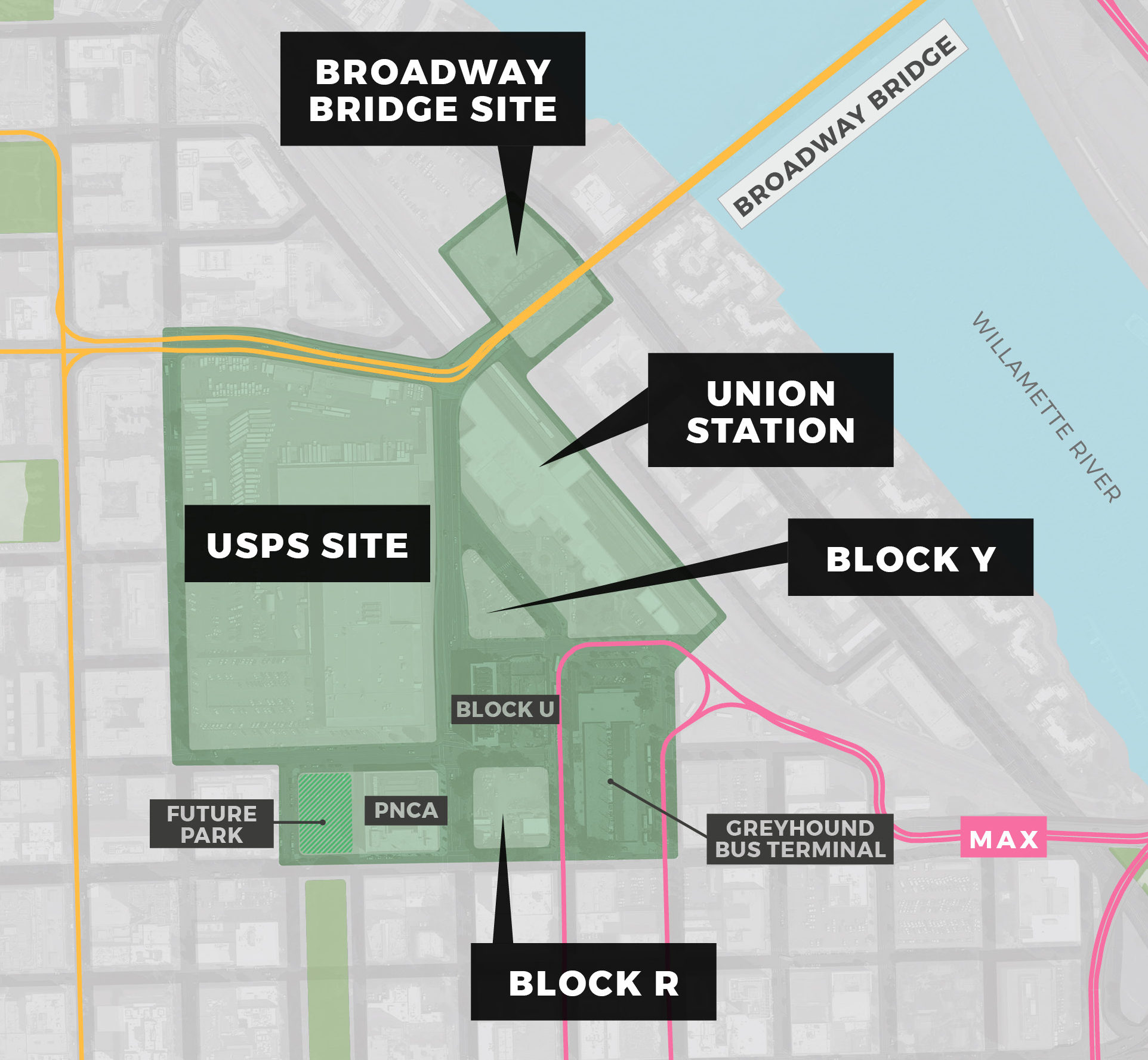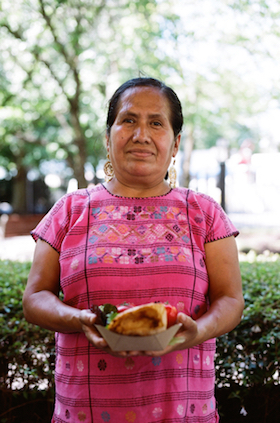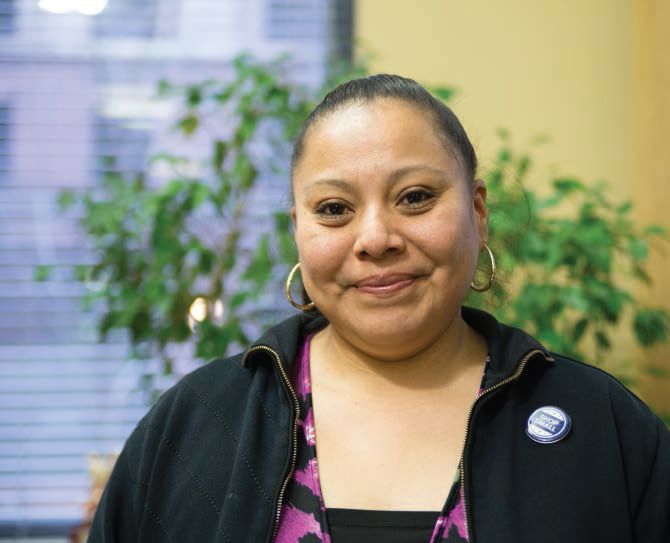Broadway Corridor Redevelopment
Contact: Sarah Harpole, email or 503-823-3337
See the full Broadway Corridor Project Website
Redevelopment of the Broadway Corridor is a once-in-a-generation opportunity to add to Portland’s economy and vitality and to deliver community benefits.
The Broadway Corridor, and more particularly the USPS site, is identified in the City of Portland’s Central City 2035 Plan as a key opportunity site for high-density employment and signature city attractions, connecting the Old Town/Chinatown and Pearl District neighborhoods.
The Broadway Corridor area is approximately 32 acres and encompasses several Prosper Portland-owned properties, including the 14-acre United States Postal Service site, jointly acquired with the Portland Housing Bureau. Additionally, Prosper Portland owns Blocks Y and R and Union Station (see map on right). Built in 1896, Union Station is an active hub for Amtrak passenger rail; Prosper Portland aims to further position and activate the station as a gateway to the city and surrounding neighborhood.
Prosper Portland is pursuing planning and redevelopment of the Broadway Corridor with an intentional focus on ensuring all communities have an opportunity to engage in and benefit from its redevelopment. Robust community engagement has informed the approved Master Plan that will guide future development and priorities for public benefits to be provided via public and private investment. This work also aligns with Advance Portland’s objectives to Promote Equitable Wealth Creation and Foster a Vibrant Central City.
Development of the Broadway Corridor is now under way. As of January 2024, Prosper Portland has successfully completed demolition of the USPS Vehicle Maintenance Facility, relocation of USPS retail operations, sitework and soils remediation, and has reached the significant completion milestone on demolition of the USPS main processing and distribution facility. All four of these construction projects exceed performance goals laid out in the community benefit agreement negotiated with the Healthy Communities Coalition (HCC).
$0
was spent at Minority-Owned firms
0%
of costs were spent at COBID-certified firms
Business and Workforce goals were tracked monthly at the Labor Management Community Oversight Committee (LMCOC). Overall, 93% of costs were spent at COBID-certified firms, with nearly $36 million going to Minority-Owned firms (as of January 2024). Workforce goals were also met, with 24% of hours worked done by Apprentices, 70% done by Minority workers, and 20% done by Women workers.
0%
of hours worked by Apprentices
0%
of hours worked by Minority workers
0%
of hours worked by Women workers


